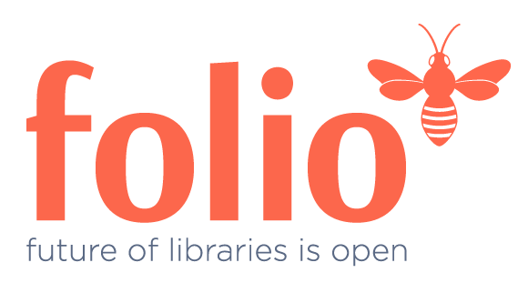by Kat Cuttriss, Associate University Librarian (Client Services), Massey University Library, Te Putanga ki te Ao Mātauranga. k.cuttriss@massey.ac.nz
Background
Massey University Library had been with our previous Library Management System (LMS) for the past 27 years. It had served us well in what was formerly a print-dominated environment. But changing times called for a fresh outlook, and so in 2021 we went through a comprehensive tender process and selected Folio – the Future of Libraries is Open – as our new Library Services Platform (LSP).
The key drivers for moving to Folio were its newly-built, microservices architecture (which makes it more flexible and future-proof), and it providing all the benefits of open source (e.g. ability to build our own functionality and user-driven development), combined with the reassurance of being hosted and supported by EBSCO. We were also keen to realise patron benefits, arising from better integration of catalogue data into our EBSCO Discovery Service (EDS) and improvements in accuracy of eResource information and our full text holdings.
Implementation approach
We put an ambitious time frame in place for implementation, as we wanted our new LSP fully up and running in time for the start of semester 1, 2022. This meant we had 4 months between our kick-off meeting with EBSCO in September 2021 and go-live at the end of January 2022.
To meet this time frame (spoiler alert = we did!), we took a “whole of team” approach. Our first step was for library staff to get together and co-create our project’s guiding principles to keep us on track if (actually, when) the going got tough.
We decided we would:
- Aim for simplicity over complexity
- Design for the majority rather than the minority of needs
- Be open to new ways of doing things at every point, and
- Accept an MVP (minimum viable product) for go-live
Our second step was to set up Functional Groups, for Circulation, eResources, Discovery, Metadata, Acquisitions, and System Administration. The Functional Group leads were assigned, reported to the Project Steering Group, and met weekly with EBSCO as part of the Implementation Team.
We then put out a call for EOIs to all library staff to join a functional group of interest to them. We weren’t looking for tech experts; we were looking for people with enthusiasm (ideally infectious), a natural curiosity about how a library system works, and a problem-solving mindset. Huge levels of interest resulted, resulting in large (but not too large) groups comprising representatives from the full library team.
The next step was to set up robust communications channels, open to all library staff, and actively monitored and curated by the functional group members. As a result, we have a stunning back-catalogue of posts on our Teams site, all meetings recorded and accessible there, process maps that describe our workflows in our former LMS and now in Folio (used as the basis for training manuals) and issues registers, where we track progress with migrations and any surprises we find during testing. This ‘repository’ in and of itself is a taonga (treasure) but it’s the daily monitoring from various staff to keep the dialogue alive and issues responded to that is the real gift.
Our journey to go-live
Without getting into all the nuts and bolts here (there is a mechanic’s workshop full of them!), suffice to say that Massey University Library is reasonably unique with our large distance-based student cohort (about 45% of our overall student population). We therefore need to provide the ability for all patrons (distance or on-campus) to select their fulfilment preference (pick-up or courier delivery to a specified address) at the point of requesting. We also have extended fixed due dates rather than rolling loan periods and rely on recalls to keep the print collection circulating well.
Building the necessary logic in our circulation settings to get all these components working as they should was quite a challenge, and kept us on our toes! We struck quite a few “what’s going on here?!” moments that have since led to a few of us setting up daily “stand ups” (accompanied by strong coffee) to temperature check how things are going, do some quick-fire diagnostics on recent issues that have emerged, and provide each other with mutual support.
Where we’re at now
We have just gone through our first upgrade to the latest Folio release (Kiwi, so aptly named!) and while things still feel a bit ‘mid-stream’ vs. ‘crossed the river’, the functional groups have put us in a great, collective place. We now have an amazing amount of distributed capability across our wider library team, filled with folks who can ‘crowd source’ problems, understand and describe what’s going on, and resolve (or escalate) as required. This is a result of our functional group members developing their knowledge, their confidence, and honing their desire to support their colleagues in turn with their Folio skills.
Folio’s open-source community approach is a step forward for us, as well. We are yet to ‘flex’ fully into that space, as up until now we have been so focussed on getting through to go-live. But this is where our future lies!

